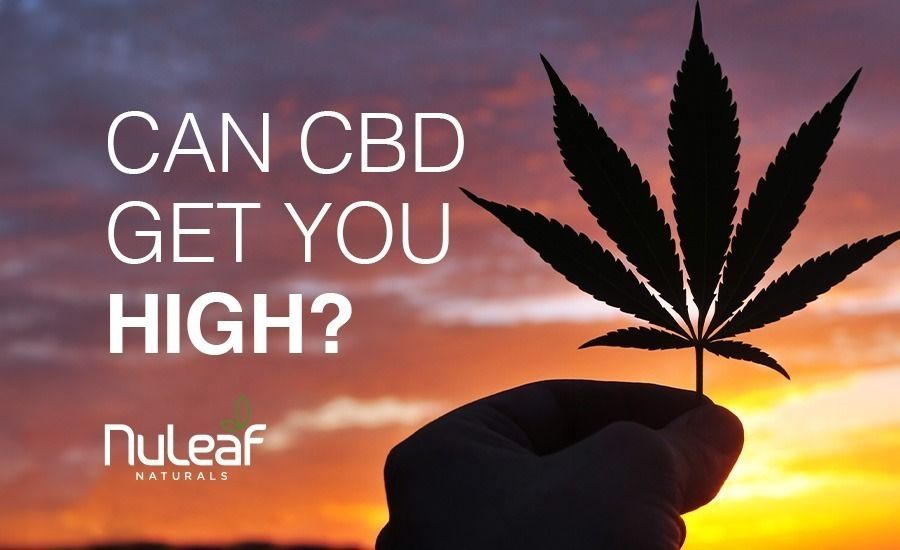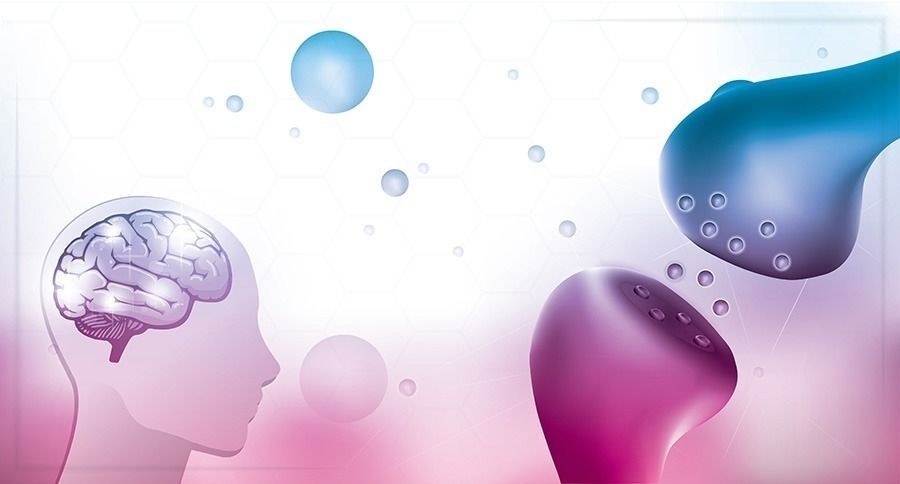Does CBD Get You High?

Some people, especially those new to cannabinoids, confuse the most popular two: CBD and THC. It’s no wonder, as they both come from cannabis plants, and cannabis in general is often considered psychoactive, especially by less experienced consumers.
In addition, the terms surrounding both compounds, like “vape,” “oils,” and “tinctures,” are often used interchangeably to refer to THC and CBD products.
If you’ve ever wondered if CBD is psychoactive like THC or are curious about the differences between the two, this blog post is for you! Read on to learn all about CBD vs. THC, the endocannabinoid system, and whether or not CBD can get you high.
CBD vs. THC
CBD (cannabidiol) comes from the hemp plant or Cannabis sativa. According to federal law, a hemp plant is a cannabis plant that contains no more than 0.3% THC (tetrahydrocannabinol).
This low amount of THC does not produce the “high” or euphoric effect that cannabis is known for. Since it offers the same wellness benefits of cannabinoids, CBD is a popular alternative for those wanting to steer clear of any psychoactive effects.
CBD’s non-psychoactive nature has led many countries to legalize its production, including the US, UK, and Canada. In addition, CBD is not known to cause any adverse side effects in normal dosages.
While CBD is typically derived from hemp, THC is derived from other strains of cannabis that contain more of the psychoactive cannabinoid. In these plants, THC is found primarily in the flowers and buds.
The levels of THC found in cannabis vary greatly depending on the strain and individual plant, but generally range from 10% to 30%.
Because of its psychoactive nature, THC is heavily regulated. It currently has legal status in countries like Mexico, Uruguay, Thailand, Malta, Canada, and some states in the US. However, many more countries have approved its use for medical purposes.
Chemical Structure
Despite both being found in the cannabis plant, the chemical structures of THC and CBD are different.
THC’s chemical structure is C19H26O2, where C represents Carbon, H for Hydrogen, and O for Oxygen. CBD’s structure is C21H30O2.
Effects on the Body
The main difference between CBD and THC is that CBD isn’t psychoactive, meaning it doesn’t produce a “high” or mental alteration. CBD has various effects on the body that are enacted via the endocannabinoid system and can improve overall wellness.
THC, on the other hand, is psychoactive, producing feelings of euphoria and altered sensory perception. There is a wide range of cannabis cultivars or “strains” containing THC, and the overall effects can vary from strain to strain.
Legal Status
CBD is legal in almost all countries, including the US, UK, Canada, and Australia. In the United States, it is federally legal nationwide but regulated at the state level, and some states have harsher restrictions on it than others.
Because of its psychoactive properties, THC is heavily regulated. It is approved for recreational use in some US states but not in others.
The Endocannabinoid System
The endocannabinoid system is a complex network of receptors that keep our bodies in balance. The main receptors, CB1 and CB2, regulate our physical responses and maintain balance in a state known as homeostasis.
Both cannabinoids interact with the ECS; the primary difference is that THC binds to these receptors, while CBD indirectly interacts with them.

CBD interacts by inhibiting an enzyme called FAAH (fatty acid amide hydrolase), which breaks down anandamide, a compound that affects mood and pain perception.
In addition, CBD also interacts with other receptors, such as serotonin (5-HT1A) which is known to impact mood.
Learn more about CBD and the endocannabinoid system.
The Entourage Effect
The main idea behind the entourage effect is that some cannabinoids work better when used together.
The entourage effect proposes that a combination of cannabinoids, terpenes, and other compounds work together to increase the overall effect on the body.
Many CBD products contain trace amounts of THC to promote the entourage effect. However, because the amount of THC is so insignificant (0.3% or less), it isn’t enough to get you high.
CBD and Drug Tests
If you have an upcoming drug test, you might be wondering if CBD will cause a positive result for cannabis. Because the THC content of most CBD products is so low, it is highly unlikely that it will, but it is possible.
For this reason, it is crucial to obtain CBD products from only reputable sources who can provide lab-tested Certificates of Analysis that confirm the levels of THC and other cannabinoids in their products.
Read this blog post for more information on CBD and drug tests.
Will CBD Get You High?
The short answer is no; CBD will not get you high. Unlike THC, CBD doesn’t produce any psychoactive effects and will not cause altered perception or euphoria.
However, some products on the market contain both CBD and THC, with high enough amounts of THC to produce a psychoactive effect. For this reason, unless this effect is desired, you should only use products from reputable brands and ensure that they have undergone third-party testing to ensure that the THC levels are less than 0.3%.
Still not convinced? In that case, consider that the Center for Disease Control and Prevention have clarified on their website that CBD is not impairing and will not cause a high.
Final Thoughts
So there you have it! CBD will not get you high, so you need not worry if you’re looking to explore its benefits.
If you’re looking to try CBD for yourself, NuLeaf Naturals offers a wide range of CBD oils, capsules, gummies, and other CBD products online. Our Farm Bill-compliant CBD products are made of the highest quality ingredients and have undergone strict testing by an independent third-party laboratory to ensure purity and efficacy.*
*Nuleaf products are not intended to diagnose, treat, cure, or prevent any disease.